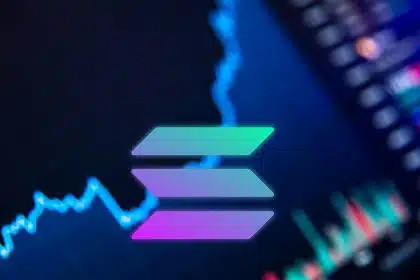An exploit on Magic Eden led to the creation of fake NFTs for the popular ABD and y00ts collections. Magic Eden has said to have resolved the issue for now.
On Wednesday, January 4, there was a major exploit reported on the popular NFT marketplace Magic Eden with scammers able to pass off and sell several Solana-based fake NFTs on the platform.
The NFT community members created a buzz on Twitter, after allegedly spotting fraudulent NFTs listed from popular collections like ABC and y00ts. The scammers also apparently managed to pass off the NFTs showing themselves as part of the projects. Later they sold these NFTs for several hundred dollars worth of SOL or even more. The word spread quickly within the crypto community appraising other users of the scam and asking not to buy NFTs on Magic Eden.
Do not buy these @y00tsNFT on @MagicEden, they are fake!
Basically, every single collection is fake on Magiceden, a massive exploit is happening ongoing.
High-value NFTs are suffering the most, as attackers choose to exploit higher-value NFTs first. pic.twitter.com/35RYHOKVxd
— HGE.SOL 🔤🧙♂️ (@HGESOL) January 4, 2023
NFT marketplace Magic Eden was pretty quick in taking note of this. They responded to the development by thanking the community for alerting them about fake NFTs. Magic Eden stated that they have added more verification layers per collection in order to resolve this issue.
But the pseudonymous creator of ABC NFTs – HGE – further lashed out at Magic Eden calling it a “massive exploit”. The ABC creator asked Magic Eden to temporarily shut down their operations until they resolve the issue. “I know volume is important, but limit the damage first,” tweeted HGE. “Make sure the exploit is stopped, like really make sure of it.”
Magic Eden Resolves the Issue with FakeNFTs
A few hours later, Magic Eden stated that they have resolved the two main issues of fake NFT listings on their collection pages as well the transactions of fake NFTs on activity tabs. They further requested its users to hard refresh their browsers so that they only verified collection items. For failing to do so, users might continue to see unverified NFTs on the activity and collection tabs.
As per Magic Eden’s analysis, the situation impacted less than 10 NFT collections. Furthermore, they noted that they have contained this issue to 25 unverified NFTs across four collections. However, Magic Eden hasn’t explained what actually led to the exploit. The NFT marketplace has blamed a third-party image caching partner for the problem.
Besides, the company also blamed this exploit as a UI issue emerging via the launch of two recent features – Pro Trade tools and Snappy Marketplace. “The technical explanation is that our activity indexer for these two tools did not check that the creator address is verified,” the firm wrote. “Magic Eden’s smart contract remains secure, and this incident was an isolated UI issue.”
Magic Eden said that they would refund all those who have been affected. “We’ve resolved the issue and will refund those affected. Now, no one can buy unverified NFTs on ME,” they added.
 coinspeaker.com
coinspeaker.com
